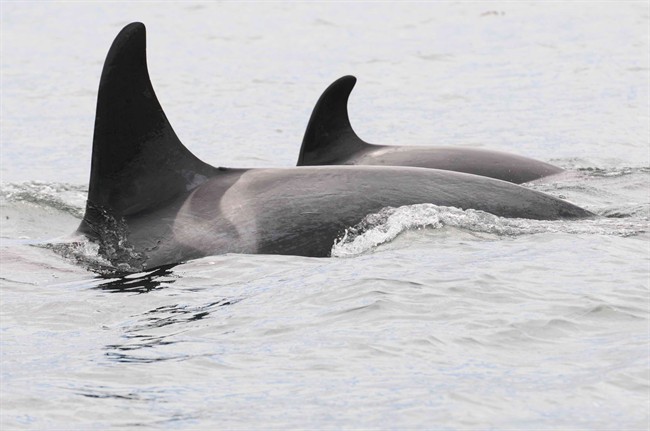VANCOUVER – A female orca calf has been found dead on the west coast of Vancouver Island.

Paul Cottrell of Fisheries and Oceans Canada said a surfer spotted the dead whale washed up on Mussel Beach near Ucluelet on Dec. 23 and called the department’s marine mammal incident hotline.
He said the 400-pound carcass was transferred to Abbotsford, B.C., where a necropsy was conducted on Christmas Day. Scientists are still awaiting results of tissue-sample testing and a cause of death is not yet known.
“It was just a tremendous effort by everyone involved, at a time when normally you’re with your family,” said Cottrell. “Everybody came together and made sure we got this animal looked at as quickly as possible.”
Cottrell said DNA tests are expected to show whether the whale was part of the endangered southern resident population, which had a baby boom of eight calves born this year.
He said it’s possible the calf is part of the transient population, which is classified as threatened but not endangered.
“All our populations of killer whales are at risk, so it’s a shame regardless of which population it’s from,” he said. “You hate to lose a calf out of these populations.”
Scientists have requested a rush on the tissue testing but it could take up to six months for all the samples to return, he said.
He said it’s believed the calf was about two months old. Killer whale calves have a 50-per-cent mortality rate in the first year of life, he added.
- Three B.C. men fined, banned from hunting after killing pregnant deer
- B.C. child-killer’s attempt to keep new identity secret draws widespread outrage
- Inquest hears B.C. hostage was lying on her captor before fatal shooting
- ‘We’ve had to make a 180’: What Oregonians say they got wrong with decriminalization
Cottrell noted it was especially unfortunate that the calf was female because of their value in contributing to the population.
He said wolf tracks nearby and damage to the carcass indicate that wolves foraged on the body after it washed up on the beach.
“It didn’t take long for the local carnivores there to find this carcass,” he said.
The southern resident baby boom has been cheered by marine mammal researchers but some have cautioned that more calves mean more mouths to feed.
The Washington state-based Center for Whale Research said earlier this month that there’s a continued need to focus on wild Chinook salmon restoration in the area.
In December 2014, an orca from the southern resident population was found dead near Comox, B.C., carrying a full-term female calf. Necropsy results determined she died due to complications from the pregnancy.



Comments